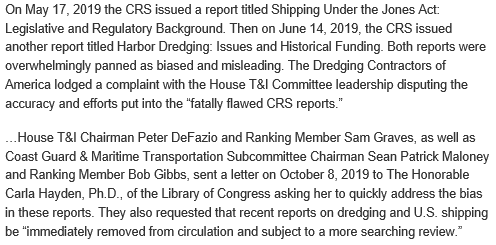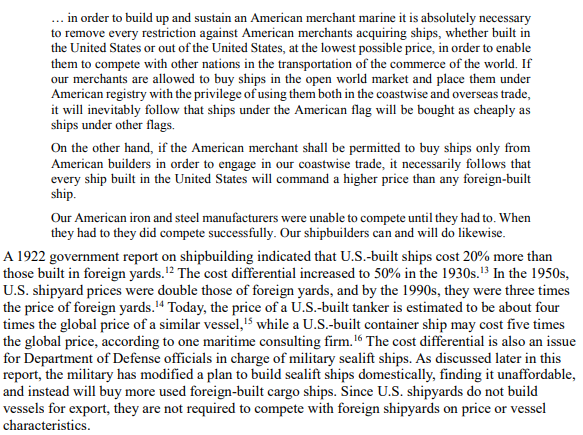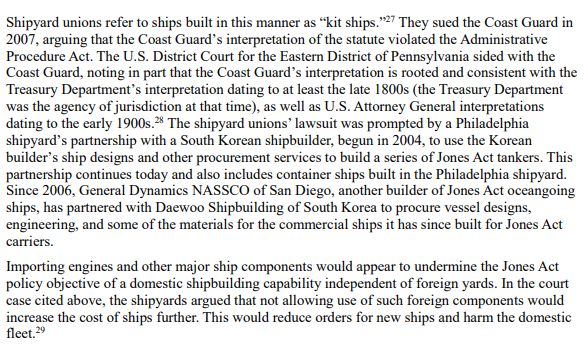
"shipments of U.S. crude oil by Jones Act tankers and barges from the Gulf Coast to the East Coast fell by 57% in 2016, according to EIA data. At the same time, imports of foreign crude oil to the East Coast rose by 35%"
#EndTheJonesAct

#EndTheJonesAct
https://twitter.com/USGAO/status/1329818060425981954


This can't be explained without the Jones Act. When faced with expensive domestic shipping, it makes more sense for East Coast refiners to buy foreign than domestic.
More on that here: ft.com/content/b1ea86…
More on that here: ft.com/content/b1ea86…
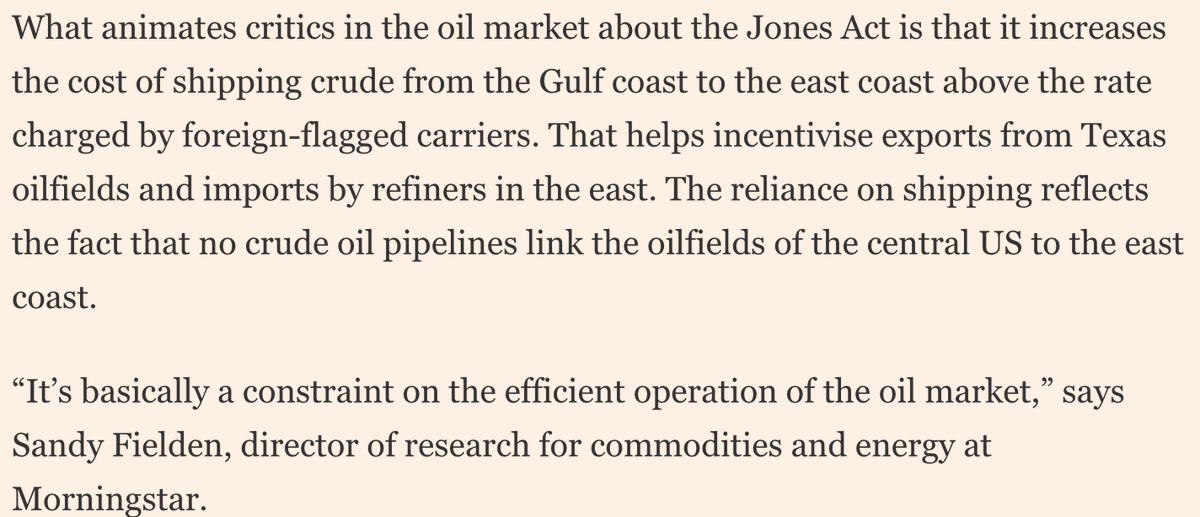
Also note: "approximately 80% of the Jones Act fleet was built between 2007 and 2016, and since such vessels have a lifespan of approximately 30 years, it is unlikely that there will be a need to build new tankers in this decade given the decrease in demand." 

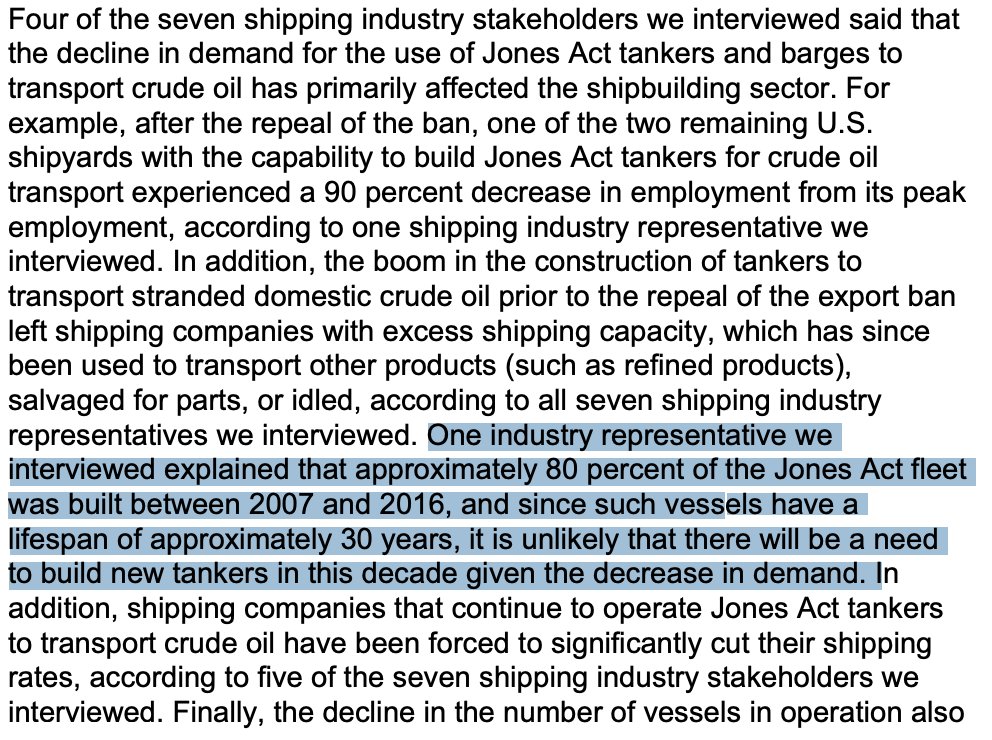

Tankers are ~60% of the Jones Act fleet (57 of 97 ships). If those aren't being built, and there's no talk of new orders for containerships, there will surely be multiple years this decade in which *zero* new Jones Act ships are delivered.
Also, a lifespan of approximately 30 years? Doubtful. Given fearsome replacement costs, closer to 40 seems more realistic. One current Jones Act tanker, the Chemical Pioneer, was built in 1968.
• • •
Missing some Tweet in this thread? You can try to
force a refresh


